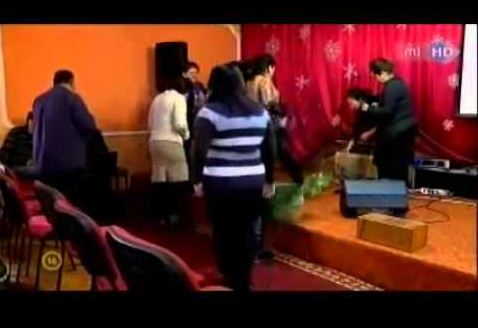Published: 3 December 2012
Country: Hungary
by Bea Bodrogi*

 Non-governmental organisations in Hungary recently claimed a victory in their fight for the human rights and rights of ethnic minorities and Roma community rights. That is because the Hungarian Parliamentary Commissioner for Fundamental Rights, ombudsman Máté Szabó has concluded that the film titled „Pesty Fekete Doboz: Hungarian/Gypsy Co-existence” had violated the right to equal dignity.
Non-governmental organisations in Hungary recently claimed a victory in their fight for the human rights and rights of ethnic minorities and Roma community rights. That is because the Hungarian Parliamentary Commissioner for Fundamental Rights, ombudsman Máté Szabó has concluded that the film titled „Pesty Fekete Doboz: Hungarian/Gypsy Co-existence” had violated the right to equal dignity.
Ombudsman Szabó took measures to ensure that the Media Authority in Hungary proceed with more professionalism in the future with regards to the protection of equal dignity and that it apply the instruments at its disposal and granted to it by law.
This confirms the claim of non-governmental organisation CivilMedia that the Media Authority’s interpretation and application of the law did not meet constitutional standards.
CivilMedia and several other organisations in Hungary protested after the documentary film „Pesty Fekete Doboz” was shown by state broadcaster in March this year.
“The documentary promises to show the co-existence of Hungarians and Gypsies, but depicts an oversimplified view of the issue. Roma people are depicted in one of two ways: either as courageous, outspoken ‘good guys’, or the ‘bad guys’, the silent majority who engage in criminal activities, who drink, are violent and unemployed. The documentary demonstrates a simple, ‘black-and-white’ reality that supports its overall message. It suggests that the tensions arising from the co-existence between Hungarians and Roma are exclusively the fault of Roma, and that only the Roma community have the ability to relieve these tensions by integrating themselves within Hungarian society”, wrote Civil Media in the statement earlier this year.
Ombudsman believes that it is inadmissible for anyone to portray criminality and deviance as Roma issues. He particularly highlighted the expectations weighing upon programming broadcast by mass media that it be objective, and factual, and that the right to opinion of the content makers can only be realized within this constitutional framework. Szabó stated that the right to obtain unbiased information for the forming of democratic public opinion as well as the related requirement to provide a public service had been violated; further, that the Media Authority had failed to perform its role as a protector of fundamental rights.
One of the main activities of CivilMedia over the past year has been to draw the attention of the public and of the Media Authority to cases of degrading, unbalanced portrayal of minorities in the media. The Hungarian Media Authority did not find even one of these instances of imputed media content to be objectionable.
*Bea Bodrogi is the founder of Civil Media and the author of a study „Gypsy stereotyping in the media”.